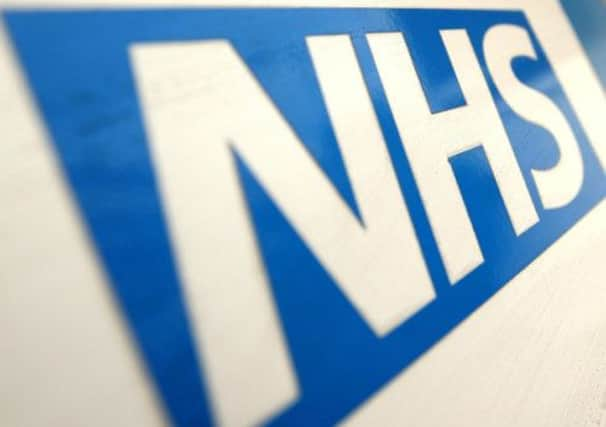Rural communities are being ‘sacrificed’ in NHS cash crisis


NHS North Yorkshire and York is expected to be the only primary care trust in the country to be burdened with a multi-million pound deficit when a radical overhaul of the health service kicks in this spring.
The vast majority of the predicted £12m debt will be passed on to the GP-led Clinical Commissioning Groups which are replacing the PCT, prompting grave fears a decade-long financial crisis which has gripped the NHS in North Yorkshire will continue.
Advertisement
Hide AdAdvertisement
Hide AdA delegation of MPs has met with Health Secretary Jeremy Hunt to urge him to undertake a root-and-branch review of the funding formula to ensure the county, which is one of England’s most affluent areas, is given a greater windfall.
The demands of providing healthcare across North Yorkshire’s vast rural areas and an ageing population which is living longer than people in more deprived areas of the country are piling intense pressure on beleaguered resources.
NHS North Yorkshire and York’s chief executive, Chris Long, told the Yorkshire Post the county had “always faced really difficult challenges” in the wake of years of chronic under-funding.
But Mr Long, who will take on a new role as the local area team director for the NHS Commissioning Board from April 1, added: “A system change of this magnitude is clearly a huge undertaking and it will require everyone working in the local health service to be patient, flexible and accommodating as we move through into our new NHS. I am confident we have the right people in the driving seats of our emerging CCGs who can bring fresh perspectives and creative thinking to the table to help us tackle our very real challenges.”
Advertisement
Hide AdAdvertisement
Hide AdNHS North Yorkshire and York is England’s most rural PCT area and receives significantly less than other more deprived and urban areas. The trust gets £1,477 per head of population compared with a regional average of £1,690, while the PCT covering Barnsley receives £1,903. In Sheffield, the PCT is awarded £1,701 and in Leeds the figure is £1,552.
Under the new structure, the county will have a total of six CCGs, with the Craven district shared between two organisations covering Lancashire and West Yorkshire. The CCGs will not be responsible for all the services currently provided by the PCT but will have to consume most of the multi-million pound deficit, although the exact figure have yet to be finalised.
The NHS Commissioning Board has stressed the CCGs will see a real term increase in funding of 0.3 per cent. But concerns have been expressed over a continuing funding divide between rural and urban locations.
Figures obtained by the Yorkshire Post have shown the Vale of York CCG will receive about £357.8m, equating to £1,052 per head of population – which is thought to be the worst funding settlement in the North of England.
Advertisement
Hide AdAdvertisement
Hide AdThe Conservative MP for Selby and Ainsty, Nigel Adams, was among the group of MPs who met with Mr Hunt earlier this month to set out the need for a dramatic overhaul of funding allocations.
Mr Adams said: “The current system is broken, and North Yorkshire is being discriminated against. This was a formula set up by the last Government which hugely advantages metropolitan areas while disadvantaging rural areas like North Yorkshire.
“The previous Government has heaped cash on deprived areas, such as Barnsley and Hull, but the health issues persist. It is not simply a case of throwing money at healthcare to solve problems, there needs to be a co-ordinated approach. But the discrepancies in North Yorkshire are so great that the whole funding formula has to change.”
Mr Adams claimed the Health Secretary has acknowledged a need to revamp funding allocations, but reforms will not be brought in for at least another 12 months.